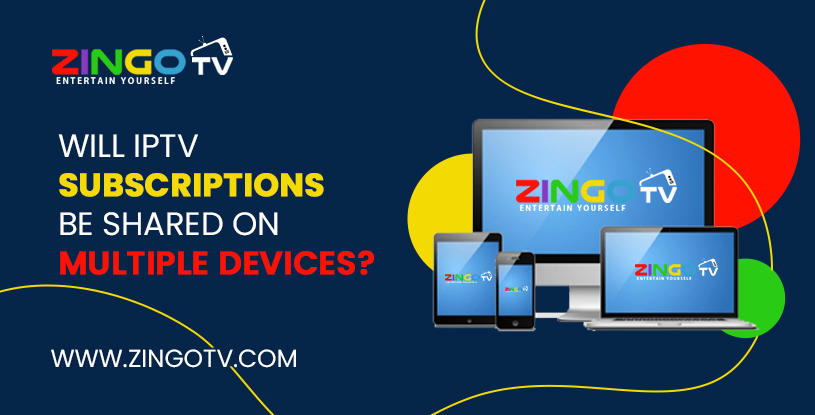Multiple Connection Options in IPTV Services
As the demand for IPTV services continues to rise, providers are constantly looking for ways to improve user experience and offer more value to their customers. One of the ways they have achieved this is by providing multiple connection options, which allows users to access their IPTV service on multiple devices simultaneously.
In this blog, we will explore the different types of multiple connection options available in IPTV services and compare their features, benefits, and drawbacks.
- Single Connection IPTV Services
Before we dive into multiple connection options, it is important to understand the traditional IPTV service model, which is a single connection service. In this model, users can only access their IPTV service on one device at a time. This means that if someone is watching a channel on their TV, no one else can watch the same channel on a different device. This model can be limiting, especially for families or households with multiple members who want to watch different channels simultaneously.
- Multiple Connection IPTV Services
Multiple connection IPTV services provide users with the ability to access their IPTV service on multiple devices at the same time. This allows families or households with multiple members to watch different channels simultaneously, and also allows users to access their IPTV service on different types of devices such as smartphones, tablets, and laptops.
2.1 Two Connections
Some IPTV providers offer two connections as an option for their users. This means that users can watch IPTV on two devices simultaneously. While this option provides more flexibility than single connection IPTV services, it can still be limiting for larger households or families with more than two members.
2.2 Three Connections
IPTV providers that offer three connections as an option for their users provide more flexibility than those that only offer two connections. This allows more members of a household to watch IPTV on different devices at the same time. This option can also be useful for small businesses or offices that want to provide IPTV access to multiple employees.
2.3 Five or More Connections
IPTV providers that offer five or more connections provide the ultimate flexibility for households or businesses with multiple members. This option allows users to access IPTV on multiple devices simultaneously, without any limitations. This option is particularly useful for families with children who want to watch different channels on different devices at the same time.
- Shared Connection IPTV Services
Shared connection IPTV services offer a unique approach to multiple connections. In this model, multiple users can share one connection to the IPTV service, and each user is given their own login credentials. This means that each user can access the IPTV service on their own device, but they are all sharing the same connection to the service.
Shared connection IPTV services are particularly useful for families or households with multiple members who want to access the service on different devices, but don’t need to access it simultaneously. This model can also be useful for small businesses or offices that want to provide IPTV access to multiple employees, but don’t need all employees to access the service simultaneously.
- Dedicated Connection IPTV Services
Dedicated connection IPTV services offer the highest level of service quality and reliability. In this model, each user is given their own dedicated connection to the IPTV service, which provides the best streaming experience with minimal buffering and interruptions.
Dedicated connection IPTV services are typically more expensive than shared connection services, but they are worth the investment for users who value high-quality streaming and reliable service.
- Conclusion
In conclusion, multiple connection options in IPTV services provide users with more flexibility and convenience, allowing them to access their IPTV service on multiple devices simultaneously. The type of multiple connection option that is best for you will depend on your household or business needs, as well as your budget.





